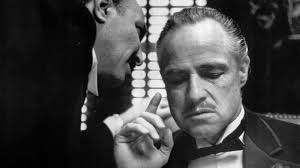Introduction
Marlon Brando, one of the most influential actors in cinematic history, has left an indelible mark on both the film industry and popular culture. His innovative acting techniques and compelling performances set a new standard for acting and have inspired countless actors since. This article delves into Brando’s career, his impact on film, and why his legacy is still relevant today.
Brando’s Career Highlights
Born on April 3, 1924, in Omaha, Nebraska, Marlon Brando rose to fame in the 1950s with pivotal performances in films such as “A Streetcar Named Desire” (1951) and “On the Waterfront” (1954). These roles showcased his unique ability to convey raw emotion and complexity, fundamentally changing the approach to acting in Hollywood. His portrayal of Don Vito Corleone in “The Godfather” (1972) is arguably his most famous role, earning him an Academy Award for Best Actor, cementing his place in cinematic history.
Innovative Acting Techniques
Brando’s use of method acting—a technique that encourages actors to draw on personal experiences to create authentic performances—was groundbreaking at the time. This heartfelt approach has influenced generations of actors, from Robert De Niro to Leonardo DiCaprio, who credit Brando’s pioneering style with shaping their own performances. His commitment to authenticity also extended beyond acting; Brando was known for his dedication to the characters he portrayed, often immersing himself in their lives to truly understand their motivations and struggles.
Cultural Impact and Activism
Beyond his acting, Brando also made headlines for his social activism. He was an outspoken advocate for civil rights, Native American rights, and various social justice causes. His refusal to accept the Oscar for Best Actor in 1973 as a protest against Hollywood’s portrayal of Native Americans is a testament to his commitment to social issues. This act of defiance not only showcased his strong political beliefs but also highlighted the role of actors as advocates for change.
Conclusion
Marlon Brando’s influence on cinema and society cannot be overstated. His innovative acting techniques transformed the industry, and his willingness to speak out on social issues demonstrated the power of celebrity. As we reflect on Brando’s contributions over fifty years later, it remains clear that his legacy continues to inspire and challenge both audiences and actors alike. In a world ripe for stories of human complexity, Brando’s work resonates more strongly than ever, ensuring his place as one of the most significant figures in film history.
